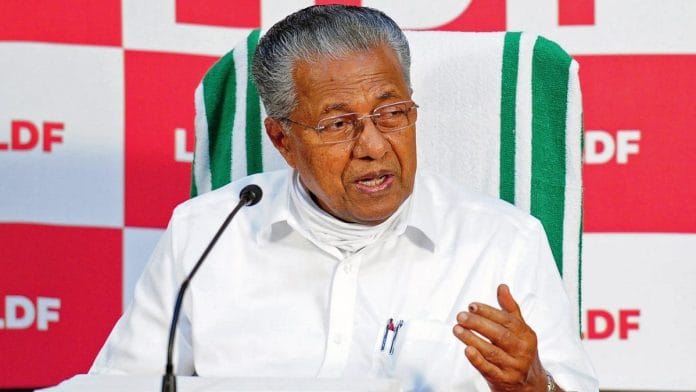Thiruvananthapuram: The Left Democratic Front (LDF) government’s move to amend Kerala’s University Laws has triggered a controversy, with the opposition United Democratic Front (UDF) alleging a political takeover by the Left to counter what it calls the Central government’s saffronisation of state campuses.
Kerala’s Higher Education Minister R. Bindu presented the Kerala University Laws (Amendment) Bill (No. 2), 2025, in the Assembly Wednesday, seeking to increase the powers vested in university pro-chancellors, pro-vice-chancellors and registrars. The pro-chancellor is the minister in charge of the higher education department.
The bill gives pro-chancellors power to preside over university senate meetings and convocations in the absence of the chancellor and request any information on university academic and administrative affairs. They or their representatives can also conduct inspections on a university, its buildings and properties.
Pro-chancellors will have the right to raise any matters they consider important or those related to government policy to the attention of the chancellor or university authorities and request appropriate action.
Bindu said the reforms aimed to ensure “ease of doing education” in the state, asserting the bill would empower public universities and help expedite state government measures to reform the higher education sector.
“When Kerala is moving forward, the outdated laws and regulations are imposing a lot of restrictions. We realise that necessary interventions have to be made to overcome this,” Bindu said, adding that the bill clarifies powers exercised by the pro-chancellor in the absence of the chancellor.
CPI (M) MLA K.M. Sachin Dev said the Bharatiya Janata Party-led Centre is always looking for opportunities to impose its political agenda in states’ universities by appointing its supporters.
“The centre is using the governor’s power to appoint the vice-chancellor to control the universities. It’s evident that this bill is crucial for protecting our universities,” the Balussery MLA said.
However, the bill has raised eyebrows within the UDF.
The Congress party’s Wandoor MLA, A.P. Anil Kumar said his party can’t support the bill even though it has never shied away from fighting against the Sangh Parivar.
“When the Sangh Parivar is trying to saffronise universities, you are trying to turn them red. That is why we oppose this,” Kumar said the autonomy of the institutions will vanish when the minister starts exercising more powers.
“Everybody knows that the bill aims to increase the power of the minister. It’s also giving more powers to the pro-vice chancellor and registrar bypassing the vice-chancellor. This is a bill to overcome your difficulties in politics,” he said in the Assembly.
The bill assumes political significance amid back-to-back protests in state universities. Last month, the CPI(M) students wing Students Federation of India (SFI) held protests at Kerala University against Vice-Chancellor Dr Mohanan Kunnummal’s refusal to allow the formation of a university union, months after the elections.
The SFI workers alleged that the VC, who they claim has “alleged links with the RSS”, froze the union election results, citing a clash between the SFI and the Congress-affiliated Kerala Students Union (KSU), even though the registrar declared the results in September 2024.
The SFI conducted state-wide protests early last year against the then governor Arif Mohammad Khan for the alleged appointment of RSS-affiliated members in state university senates using his power as chancellor.
‘Autonomy of universities will be destroyed’
The higher education minister tabled a similar bill on March 3, the Kerala University Laws (Amendment) Bill, 2025, proposing the same reforms in the laws governing Kerala University, Calicut University, Mahatma Gandhi University, Sree Sankaracharya University of Sanskrit and Kannur University.
With the second bill, the amendments have now been extended to Cochin University of Science and Technology, Thunchath Ezhuthachan Malayalam University and APJ Abdul Kalam Technological University.
Save University Campaign Committee (SUCC), a state-based whistleblowers group aimed at safeguarding the rights of universities said, “Autonomy of the universities will be destroyed if the minister intervenes in the affairs because the university should be free from all external agencies including the government. No political representative shall interfere.”
The state government says the bill was based on the recommendations of two commissions to transform the state’s universities into “focal points of knowledge generation and transmission”.
The government said the two commissions—the Higher Education Reforms Commission and the Kerala State University Law Reforms Commission set up in 2021—observed that universities in the state have become merely “degree-giving institutions” concentrating on conducting examinations.
“On examination of the said reports, the Government is convinced that the recommendations of the commissions made in matters such as enhancing the role of the Pro-Chancellor, vesting some powers with the Pro-Vice-Chancellor, giving academic freedom to the teachers and students, restructuring certain authorities, constituting new authorities, constituting constituent colleges, establishing research parks, etc. are to be implemented,” the bill states.
The bill asserts that students have the freedom to join any association provided its objectives are lawful. It grants these groups the right to organise and promote the interests of their members, hold meetings, debate any matter and engage in lawful and peaceful demonstrations.
The bill also added that universities should conduct elections to constitute the students’ representatives. It designates the registrar as the chief election officer with the authority to issue notifications, conduct elections and declare results. The vice-chancellor will deal with all election-related complaints.
(Edited by Sugita Katyal)
Also Read: Home to Kota education hub, Rajasthan looks to regulate coaching centres. What its new bill mandates






